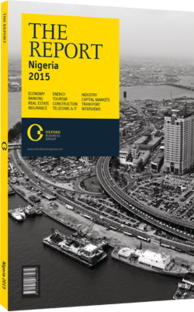Yemi Kale, Statistician General, National Bureau of Statistics (NBS): Interview

Interview: Yemi Kale
Where did the most extensive changes in GDP contributors occur following the rebasing exercise?
YEMI KALE: As a result of the rebased GDP there were major changes in terms of GDP contributors across the board. For example, the share of the agricultural sector declined from 34.7% to 21%, while the share of the services sector almost doubled from 29% to 53%. Just as important, the share of industry declined from 36.3% to 26%. In essence, there was a significant shift in the entire structure of the country’s economy and we are much more diversified than previously thought.
Under the old series, only three activities accounted for almost 70% of the GDP. Now it takes about six activities to account for that amount. Also, there are a few new segments that contribute substantially to overall economic activity in the nation. For instance, food, beverages and tobacco; professional, scientific and technical services (consultancy services); and textile, apparel and footwear made up 10% of the nation’s GDP as of 2013. These activities were not explicitly identified under the old series, but as the rebasing project has shown, they make up large segments of the economy. Additionally, the size of the services sector also surprised me. It was clear that the segment had seen strong growth but I did not think it would represent over half of the Nigerian economy.
With respect to other African countries, many have already asked us to assist with their own rebasing exercise and we are providing that support. My advice is that you can never get enough assistance. The technical assistance and support of our development partners and the government were indispensable in giving us a different perspective on the project and insight into the rest of the world’s expectations.
What are the greatest challenges in accounting for Nigeria’s informal economy?
KALE: Nigeria’s economy is characteristic of the Nigerian people: a hardworking and resilient group, most of whom will not wait for a handout to make ends meet. Thus, as people try to find alternatives to making ends meet, the informal economy becomes very fluid. One measure that we implemented during the rebasing project was to estimate the nation’s GDP via a supplyand-use matrix, which is essentially a balancing tool that ensures outputs of industries and imports – goods and services supplied to markets for consumption – are measured next to expenditure data – what Nigerian citizens actually consume. Some of the gaps between supply and use can be used to measure the extent of Nigeria’s informal economy.
One of the revelations following the rebasing was the wide gap between GDP and non-oil taxes, necessitating a formalisation of the informal sector. Take for example the millions of Nigerians engaged in transportation and transportation services. It is fairly easy to formalise them by insisting they have licences to operate, ensuring they attach meters to their taxi cabs that link directly to the authorities, and making sure that traffic controllers work towards compliance. In this way you can bring the huge informal transport sector into the formal sector and, therefore, into the tax net.
Likewise, the 2014 National Census of Commercial and Industrial Businesses will go a long way in assessing the size of the informal economy, as well as the 2014 survey on micro, small and medium-sized businesses that we will soon carry out with the Small and Medium Enterprises Development Agency of Nigeria.
Where are there still gaps in the collection of Nigerian macroeconomic statistics?
KALE: The biggest gaps are agricultural statistics and business censuses. Like the rebasing project, an agricultural review and a census on businesses have not been conducted in over two decades. While we update our roster and farms listings annually, we need censuses to be as comprehensive as possible. We have identified these gaps and are in the process of conducting the censuses. We should have the results by 2015, with help from our new electronic data-gathering system.
You have reached the limit of premium articles you can view for free.
Choose from the options below to purchase print or digital editions of our Reports. You can also purchase a website subscription giving you unlimited access to all of our Reports online for 12 months.
If you have already purchased this Report or have a website subscription, please login to continue.

